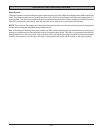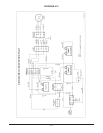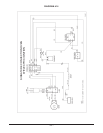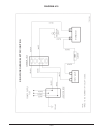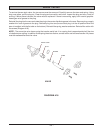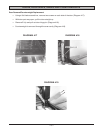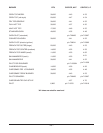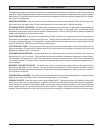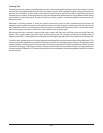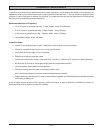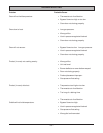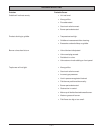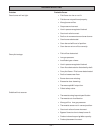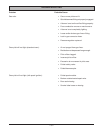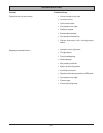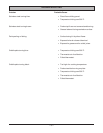
– 28 –
Cleaning Tips
The main purpose in cleaning a griddle plate is to remove the cooking debris and prevent carbon buildup. Product
will stick to a new griddle plate due to the fact that steel is porous. After a griddle has been used, the pores of the
steel will fill with carbon and the plate will be almost nonstick due to the fact that carbon has filled the pores of
the steel plate. However, excessive carbon buildup will decrease the performance of the griddle and there will be
taste transfer to the food product. Occasionally (once or twice a year) it is recommended that a commercial grill
cleaner be used.
Whenever a cleaning product is used, the product instructions must be read, understood and followed. Be
extremely careful when using any and all caustic cleaners, as they do pose a safety hazard to the user as well
as a potential hazard to any food product that may come in contact with the product itself or the residue. Make
sure to thoroughly wash the unit with fresh, clean water before cooking again.
Be advised that after a cleaner is used on the plate, product will likely stick until the pours are again filled with
carbon. After a grill cleaner has been used, product sticking can be reduced by heating the griddle plate to
approximately 300°F, rubbing beef fat on the plate and allowing the grease from the fat to lightly burn into the plate.
Constant use of griddle cleaners will cause a grease-bubbling effect around the perimeter of the griddle plate. This
occurs because the splashes are welded to the bottom surface of the griddle plate and there is a slight gap on the
cooking surface in which grease will accumulate. Normally this grease will solidify and become carbon; and the
carbon will fill the gap. The cleaner will break down the carbon barrier that has been formed, and new grease and/
or water residue will bubble up. Therefore this situation can be avoided by allowing the grease to solidify and create
a carbon barrier.



